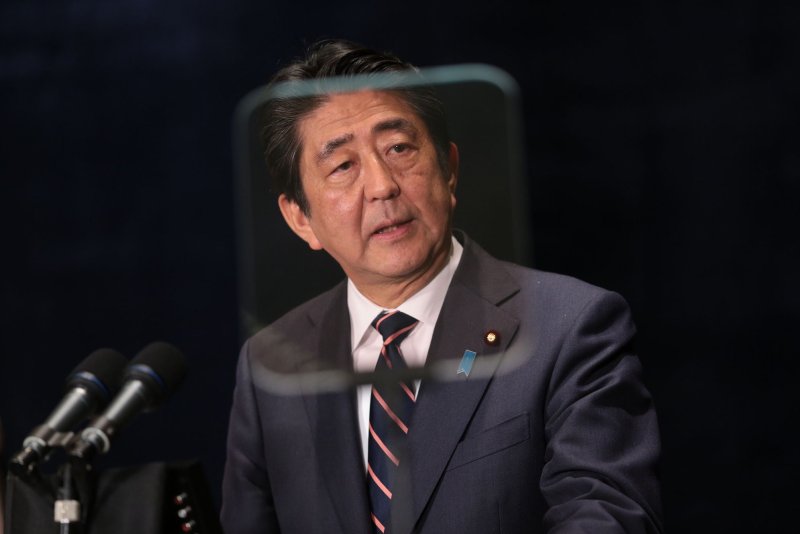Japanese Prime Minister Shinzo Abe’s rating have surpassed 60 percent in the wake of increased North Korea provocations. The prime minister has also called for improved gender equality in the armed forces. Pool Photo by Cai Yang/UPI |
License Photo
TOKYO, Sept. 13 (UPI) -- Japanese Prime Minister Shinzo Abe criticized Tokyo's self-defense forces for their male-centric culture while calling for military preparedness against future North Korea provocations.
Abe made his remarks on Monday while pointing out the low ratio of women in the Japanese military, local newspaper Sankei Shimbun reported.
Women are underrepresented in the SDF, Abe said, because of a "deeply rooted culture operating on male-centered values," which the prime minister also called the "greatest obstacle" to gender equality.
Abe also urged men in the armed forces to "actively work" toward increasing the number of women in the senior ranks, according to the report.
"If it is possible in Europe and the United States there is no reason it is impossible in Japan," Abe said.
According to Tokyo's defense ministry, women comprise 5.9 percent of Japanese military personnel.
The Japanese government plans to increase that number to 9 percent by 2030, which is lower than the rate in the United States, France and Australia, where it has hovered at 15 percent.
Abe's other policies have encouraged more women to enter the Japanese work force in order to maintain Japan's rate of economic growth.
The prime minister has also enjoyed high approval ratings in the wake of increased North Korea provocations.
For the first time in two years, Abe's ratings surpassed 60 percent, according to a poll conducted between Sept. 9 and 11, the Yomiuri Shimbun reported on Tuesday.
That rating is up 8 percentage points from August, and it is the first time the prime minister's ratings exceeded 60 percent since October 2014.
About 81 percent of Japanese polled also said they approved stronger sanctions against North Korea, according to the report.















